
A father's legacy drove WWII general MacArthur's ambition
Five-star general Douglas MacArthur had a rough and rugged upbringing that shaped him into one of history's most distinguished soldiers.
Douglas MacArthur was many things to many people, including himself. His professional record speaks for itself: He was the youngest combat general in the First World War when, in France, his bravery earned him two Distinguished Service Crosses and seven Silver Stars—the U.S. Army’s second and third highest honors for valor, respectively. Afterward, he became the youngest superintendent of the U.S. Military Academy at West Point, and in turn the youngest chief of staff of the U.S. Army. His valor and service led him to become one of only four five-star generals in U.S. history.
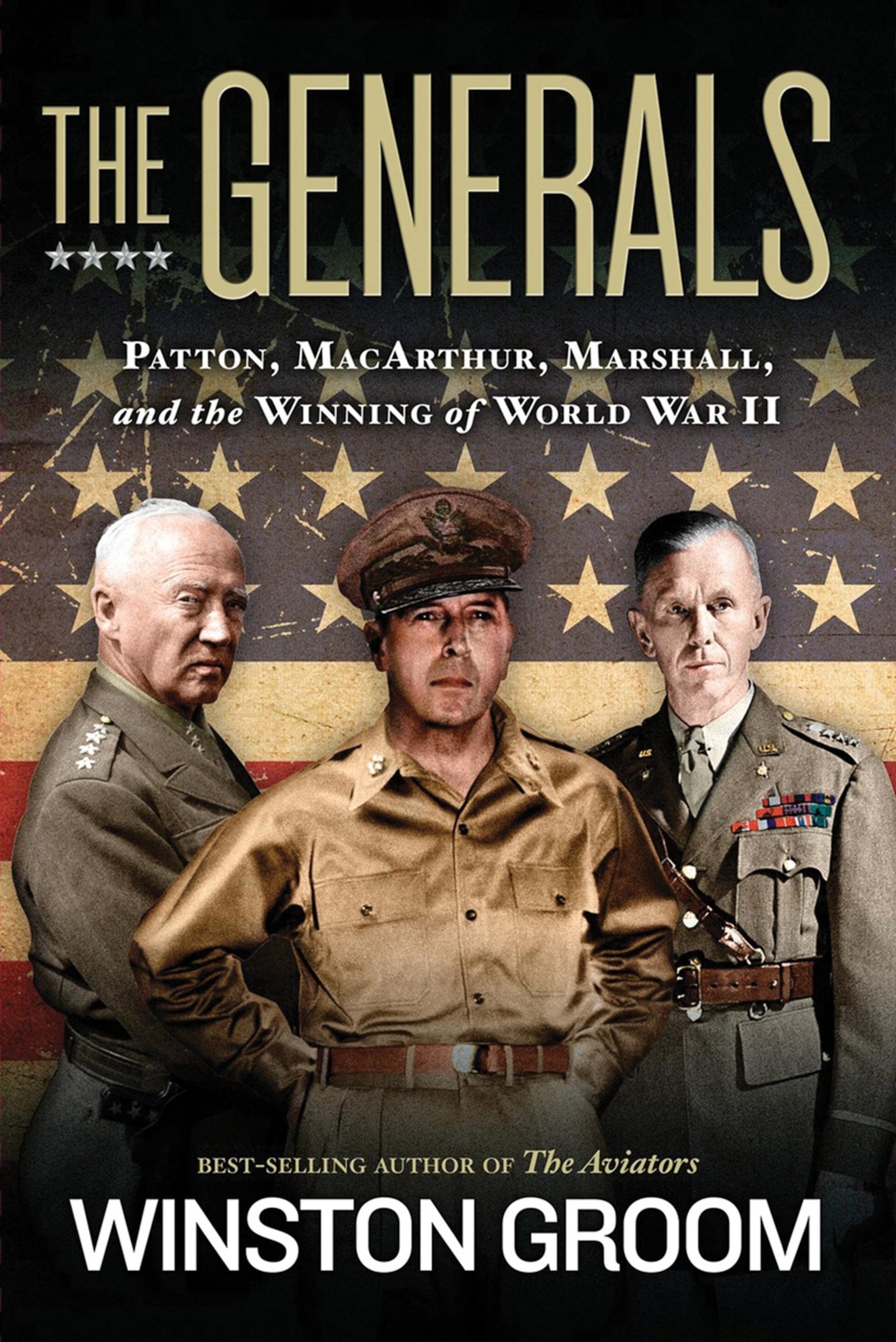
MacArthur’s personality was complex, an astonishing contradiction in both the Army and in his life—dedicated, innovative, courteous, charming, and brilliant, absolutely fearless. He was also arrogant, eccentric, abrasive, flamboyant, and imperious.
He was a killer who also hated killing. In combat he was unrelenting, and yet went to great extremes to keep his men from harm. He was a brilliant organizer, which led to his becoming chief of staff, and he was as well a peacemaker, which his service in occupied Japan demonstrated.
It was frequently said that MacArthur, trained as an engineer, had an astonishing breadth of knowledge of ancient and modern history, economics, geopolitics, literature, and the Bible. Every night when he could, he went to the movies. He was sometimes a baffling man whose habits seemed peculiar: One story has him during the fierce New Guinea Campaign pacing daily about his shabby jungle headquarters dressed in a pink kimono, alternately puffing on his eternal corncob pipe and munching on a head of lettuce that he ordered by the crateful.
How did he become all these things? A look at Douglas MacArthur’s childhood and upbringing give rich clues to the things that indelibly shaped the rest of his eventful life.
Five-Star Fashion Sense
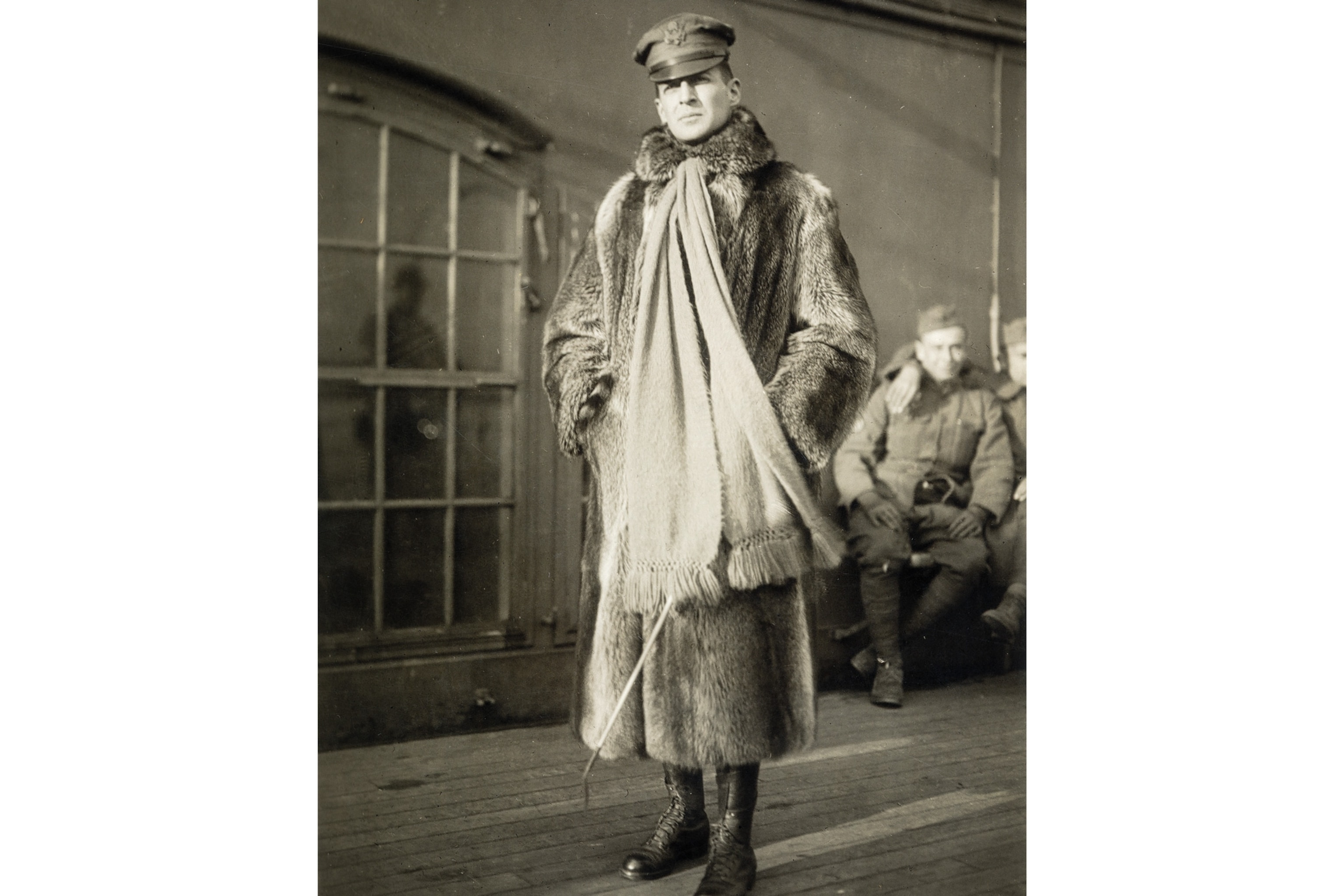
Douglas MacArthur was legendary throughout his career for his unorthodox choice of uniform. His most iconic look dates to World War II, when he was known for the “crushed” hat with the gold “scrambled eggs” embroidered on its band and bill and his trademark corncob pipe and sunglasses. This unique fashion sense began in the 1900s. In World War I, he could be seen giving pep talks to his men and their officers in the trenches. Rather than wearing a helmet or carrying a pistol, he favored donning a gray turtleneck sweater, a long, drooping scarf knitted by his mother, his jaunty officer’s cap with the grommet removed, and carrying, for some reason, a riding crop.
Battle born
Born in 1880 at Fort Dodge, Arkansas, MacArthur was fated to spend much of his childhood at a series of Army outposts in the West, each more godforsaken than the last.
His father, Arthur MacArthur, Jr., was an Army captain who had won the Congressional Medal of Honor in the Civil War and decided to make the military a career. As a youth, MacArthur remembered seeing a band of unhappy Apache warriors shoot a salvo of flaming arrows over the wall of tiny Fort Selden on the Mexican Border where he“learned to ride and shoot”before he could read and write. The first sound he ever remembered hearing was the post bugle, and while others suffered in this “Gethsemane” of heat and dust and cold and dust, interspersed by storms, flash floods, rattlesnakes, even Gila monsters, young Douglas MacArthur flourished.
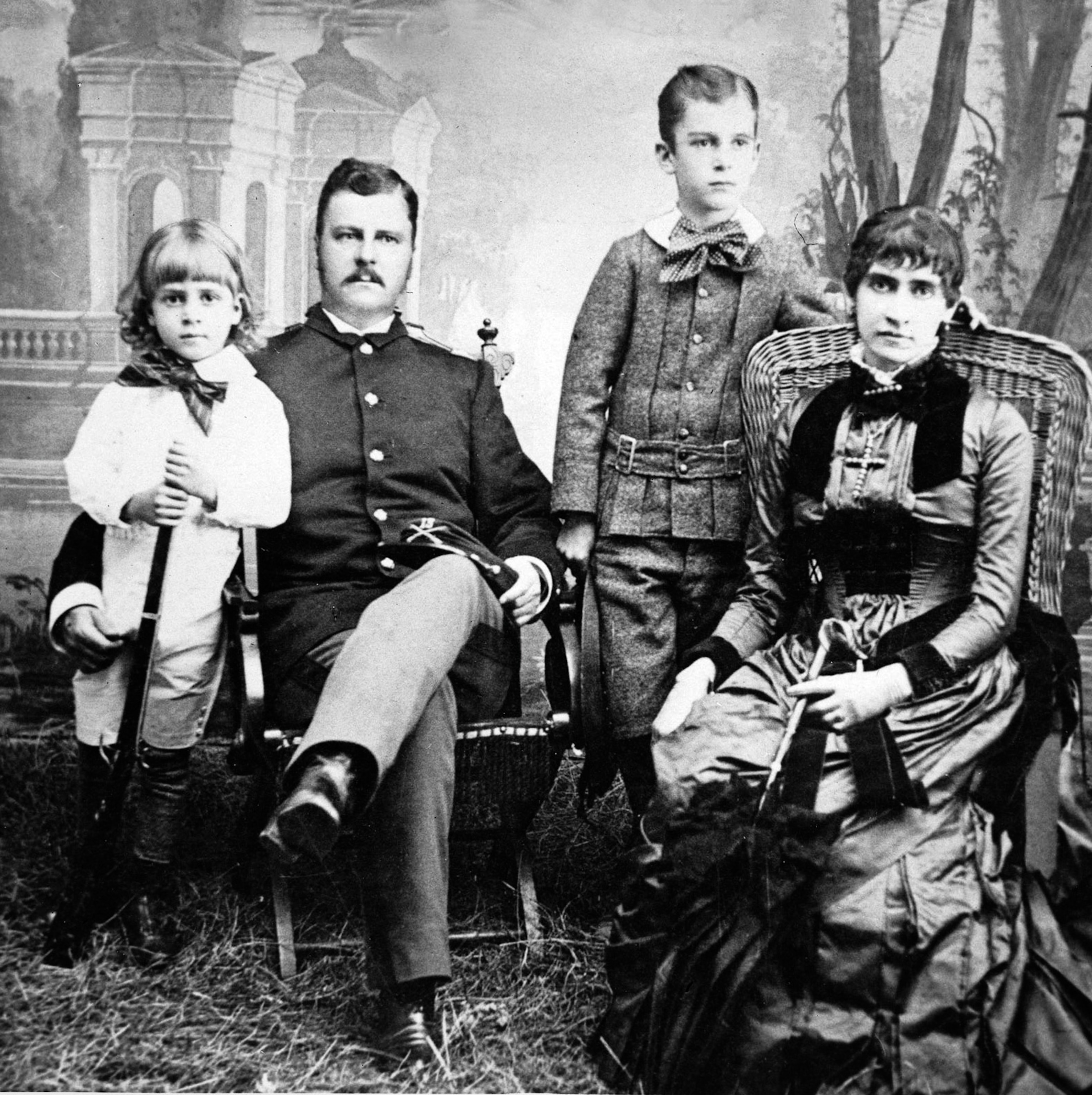

His mother, Mary “Pinky” MacArthur, came from old Virginia stock (three of her brothers had been Confederate officers). She instilled in MacArthur a strong sense of moral obligation: “We were to do right, no matter what the personal sacrifice might be,” he wrote in his memoir long afterward. “Our country was always to come first. Two things we must never do—never lie, never tattle.”
Because of his father’s military career, MacArthur’s family moved around a lot, which exposed him to a wide variety of environments and people. MacArthur’s entry into first grade coincided with his father’s transfer to the U.S. Infantry and Cavalry School at Fort Leavenworth, Kansas, in 1886. His wild upbringing in the western deserts had not prepared him for formal schooling, and by his own account he did not fare well in the classroom. When he was ten, new vistas opened for MacArthur upon his father’s transfer to Washington D.C., where his grandfather Arthur MacArthur was a prominent federal judge. This exposed the unworldly youth to the “glitter and pomp” of society in the nation’s capital where, in overhearing adult conversations, he got a taste of the political, social, and financial intrigues of the day.
Star-Spangled Generals
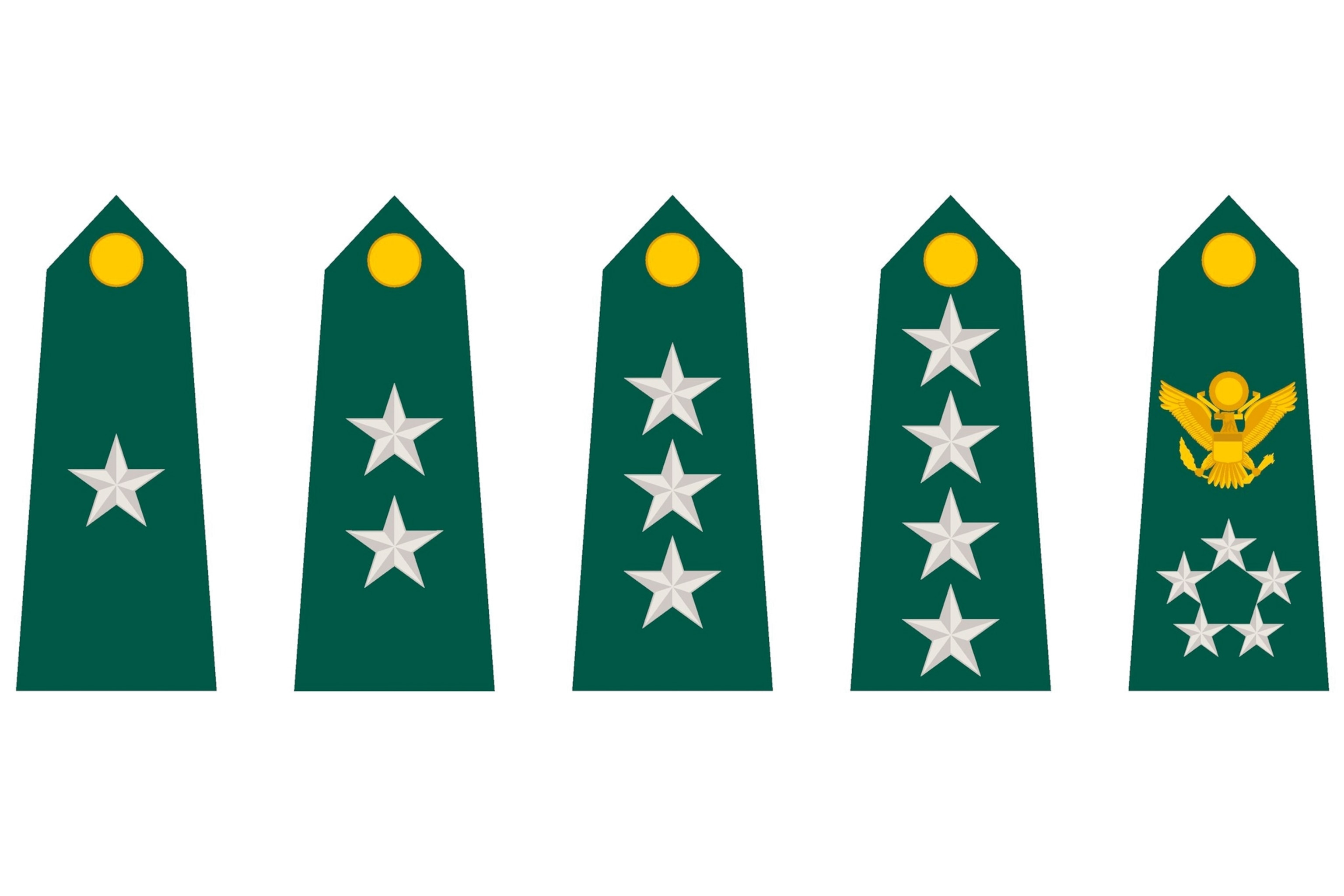
There are five ranks for generals in the U.S. Army. A single-star brigadier general, in theory, leads a brigade. These are arranged with four squads to a platoon, which come four platoons to a company—four to as many as eight of which make up a battalion—several more of which form a brigade of 4,000 to 6,000 men. A two-star major general commands a division, which is composed of several brigades. A three-star lieutenant general commands an army corps, a four-star general of the army commands an army consisting of several corps, and a five-star general of the armies commands more than one army, such as Gen. Douglas MacArthur did in the Pacific theater in World War II.
Another Army transfer found a 13-year-old MacArthur at the West Texas Military Academy near Fort Sam Houston in San Antonio where, in his own words, his horizons were expanded “with a desire to know, a seeking of the reason’s why, a search for the truth.” He recalled those years as the happiest of his life, studying Homer and Virgil in Latin and translating The Iliad and The Aeneid, epic works that conveyed to him the “nerve-tingling battlefields of the great captains.” Academic honors and medals came his way and he played sports—first team in football and baseball. In short, Douglas MacArthur had found himself.
West Point man
By then his father was an Army colonel, and it was a foregone decision that MacArthur would enroll at the U.S. Military Academy. Then, aspiring West Pointers were given a competitive exam by their appointing congressmen and MacArthur in the spring of 1898 passed with flying colors—of 13 applicants, he scored the highest, with a 99.3 average compared with the next man’s 77.6.
MacArthur arrived at West Point accompanied by his mother, who took a suite in a local hotel. Plebe year was rough due to the merciless hazing by upperclassmen, and MacArthur came in for his share. He was forced to do a hundred “eagles”—deep knee bends over the jagged glass of broken bottles, flapping the arms like a bird—all of this while upperclassmen ridiculed his father’s Civil War record and shouted insults in his face until he was covered in spittle. After hours of this, he lapsed into a convulsive faint. When at last he was able to return to his bunk that night, his legs were shaking uncontrollably and he asked his roommate to stuff a blanket into his mouth if he began to cry out. Afterward, he privately vowed never to haze a fellow cadet and if it ever became possible, he intended to put an end to the practice—which he did when he became superintendent following World War I.

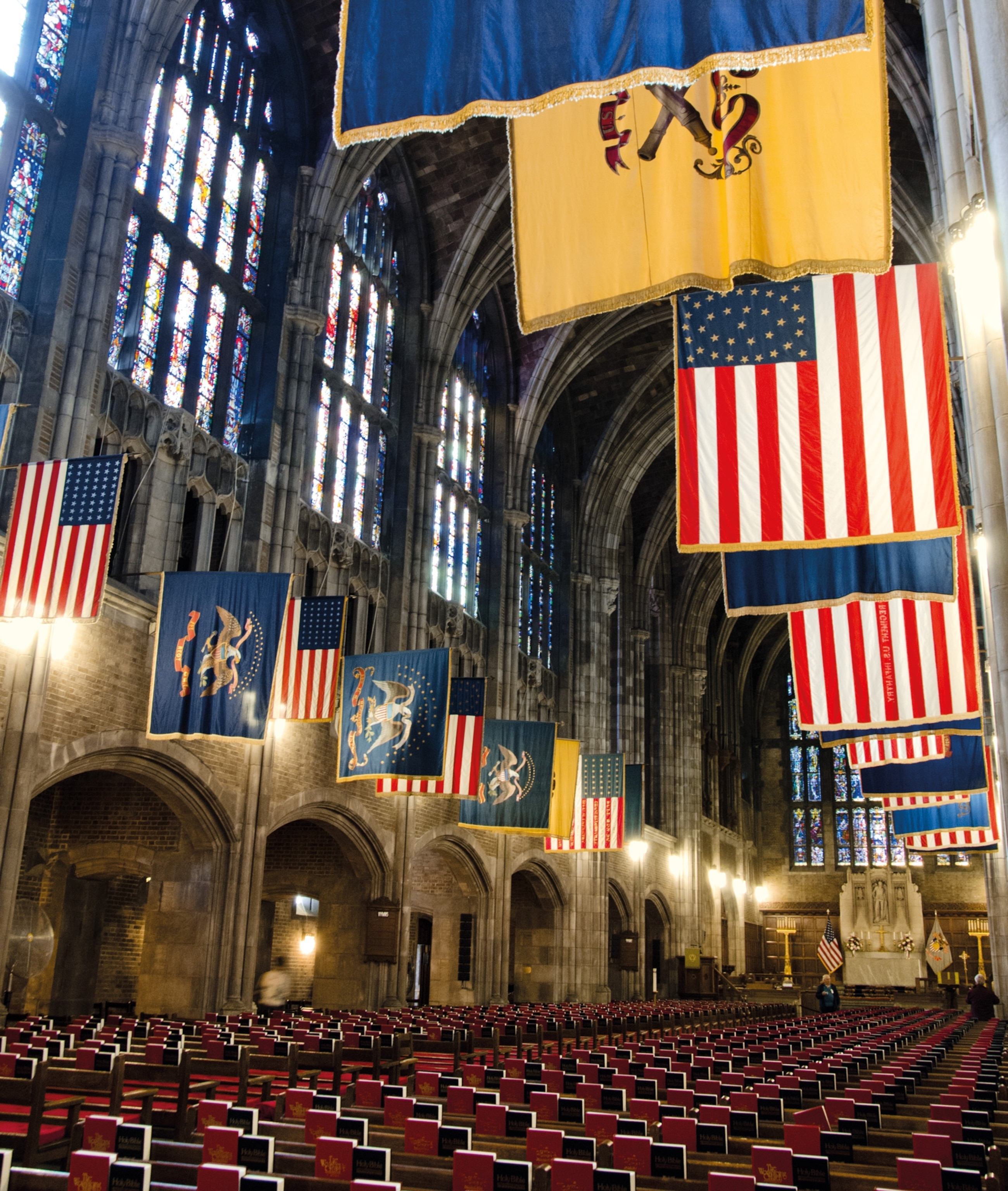
MacArthur thrived at West Point. He lettered in baseball and scored the winning run in West Point’s 1901 4-3 first ever victory over Annapolis. When it was time to announce First Captain—highest honor at the academy—MacArthur was chosen. He also held the highest academic record his senior year. He had developed an almost uncanny intuitiveness that left his instructors and tactical officers in awe. “He had style,” said a fellow classmate. “There was never another cadet quite like him.”
Glorious career
After West Point, MacArthur served in the elite Army Corps of Engineers, an auspicious beginning to his military career. His first decade was extremely successful, marked by frequent promotions and international assignments, including the Philippines, Japan, and Mexico, among others.
In World War I, MacArthur, now a colonel, led the 42nd Division (the so-called Rainbow Division, a National Guard unit composed of soldiers from a number of states). In 1918, he participated in the St. -Mihiel, Meuse-Argonne, and Sedan offensives, during which he repeatedly distinguished himself as a capable military leader.
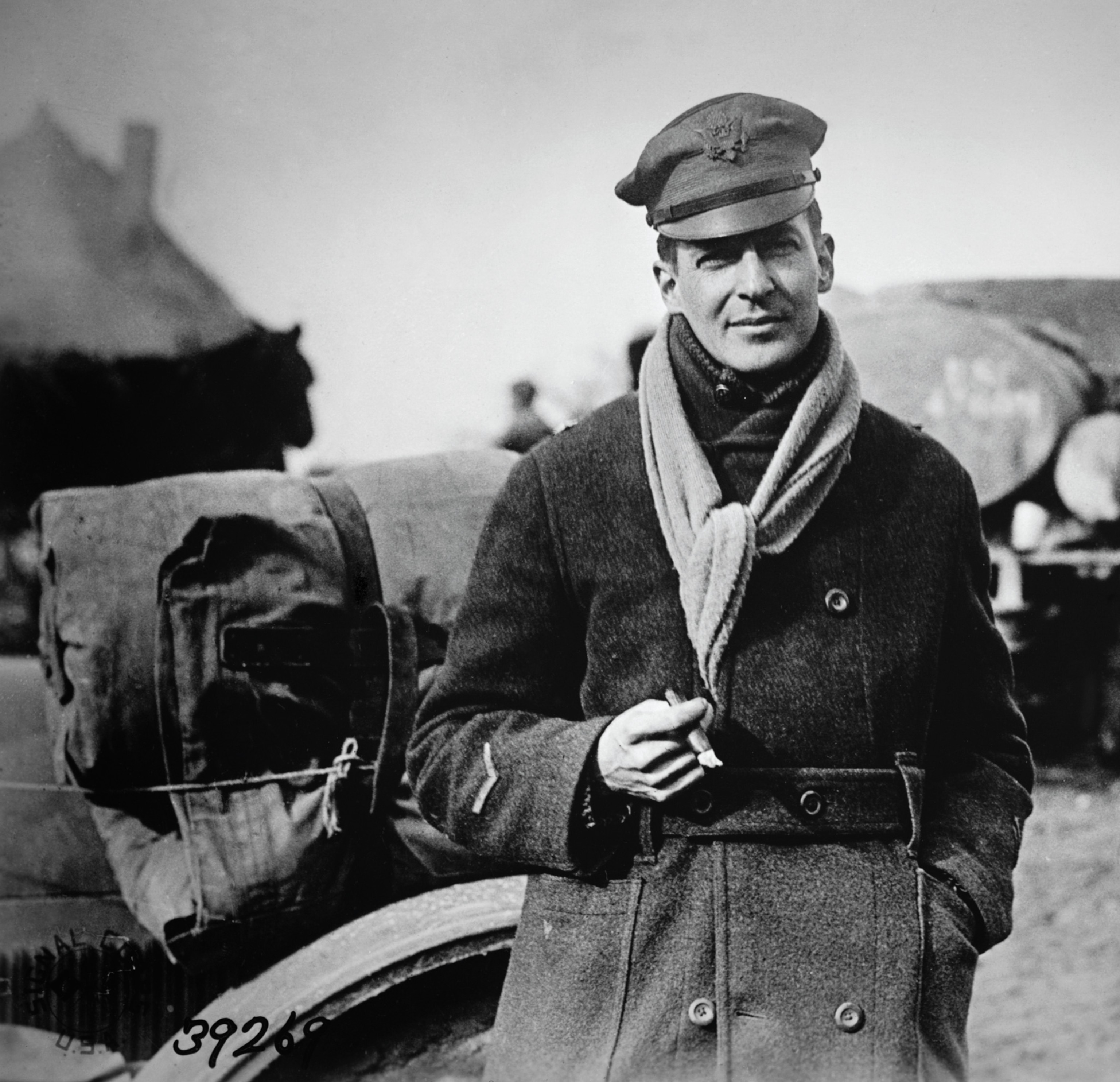
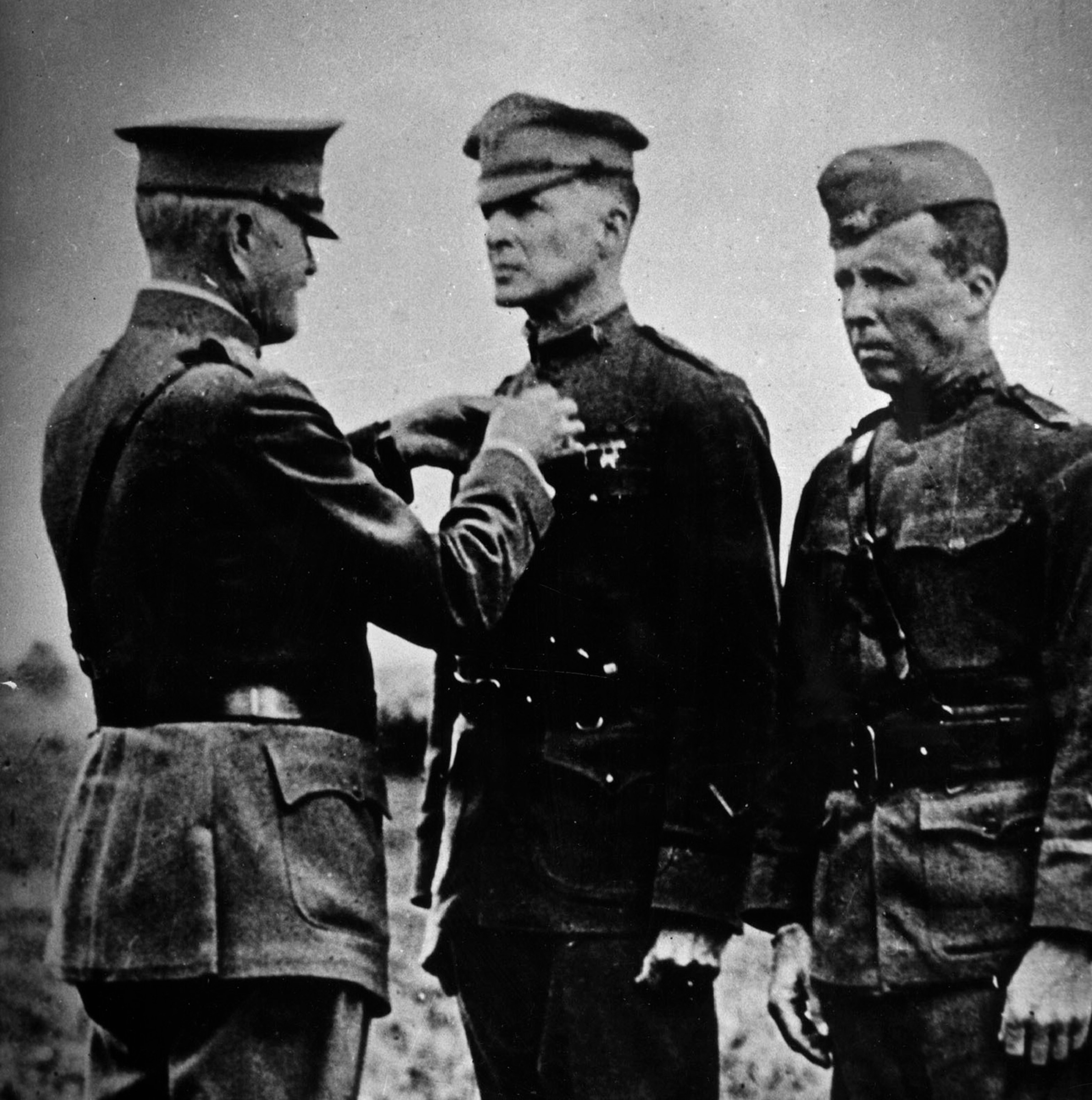
After the war’s end, MacArthur served as the superintendent of West Point for three years. For the 1920s and ’30s, he continued to hold various military posts, including chief of staff of the United States Army. But in 1937, he retired from the Army to become the field marshal of the Philippine Army, which was preparing a defense against a possible Japanese invasion.

Following the onset of World War II, President Franklin Roosevelt recalled MacArthur to active duty in the U.S. Army. MacArthur turned disaster into triumph after the Japanese overwhelmed his army in the Philippines and he managed to escape to Australia where he was awarded the Medal of Honor, as his father before him, and made commander of Allied forces in that far off part of the world. It took him more than three years to fight his way up the island chains, but in the end MacArthur liberated the Philippines, fulfilling his vow of “I shall return” to the Filipino people. He presided over the surrender of Japan in 1945, and as supreme Allied commander he successfully reconstructed not only Japan but its people into a peaceful, modern state.
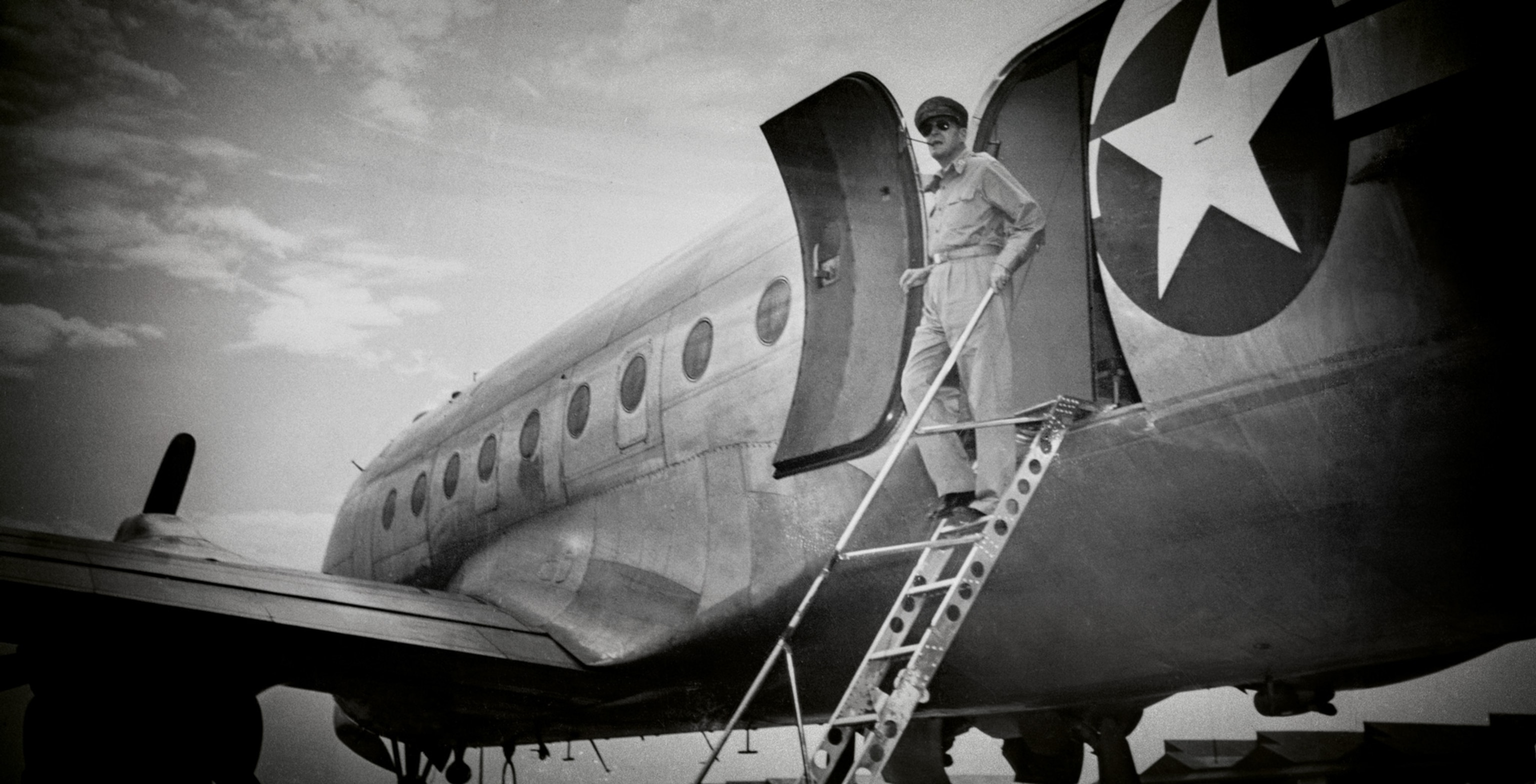
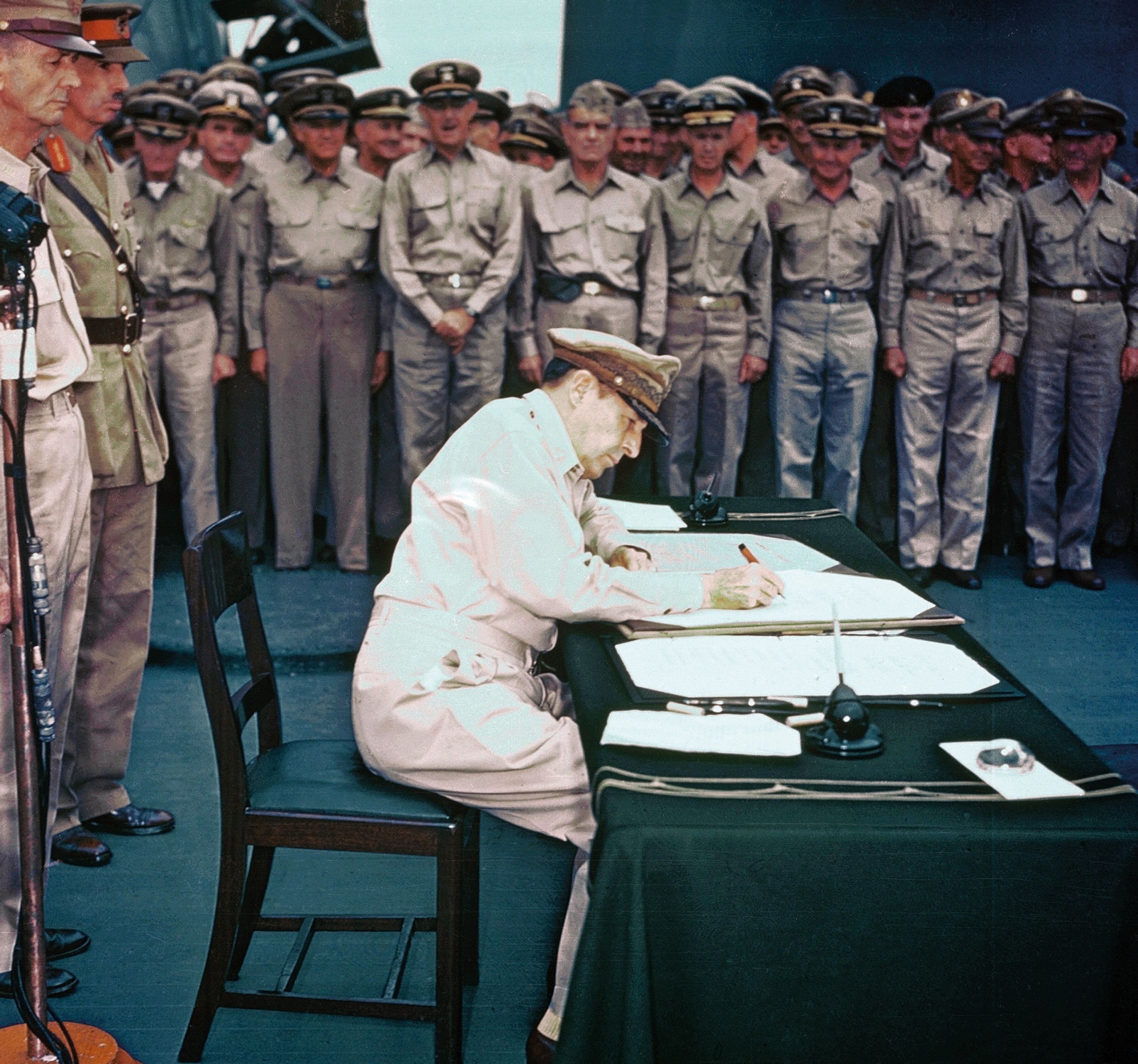
An old soldier
When in 1950 war broke out in South Korea, MacArthur once again found himself at the head of a huge international army, fighting the North Koreans and Chinese Communists. The following year, however, President Harry S. Truman relieved MacArthur for insubordination when he refused to follow Truman’s doctrine seeking a limited war. When his plane landed in San Francisco, MacArthur was mobbed by nearly a quarter million admirers, and in Washington he made such a stirring speech to a joint session of Congress that it almost caused a riot. This prompted the Speaker of the House to declare he’d never heard such an outpouring of empathy in 50 years of politics and to observe, “There was not a dry eye on the Democratic side of the House... nor a dry seat among the Republicans.”
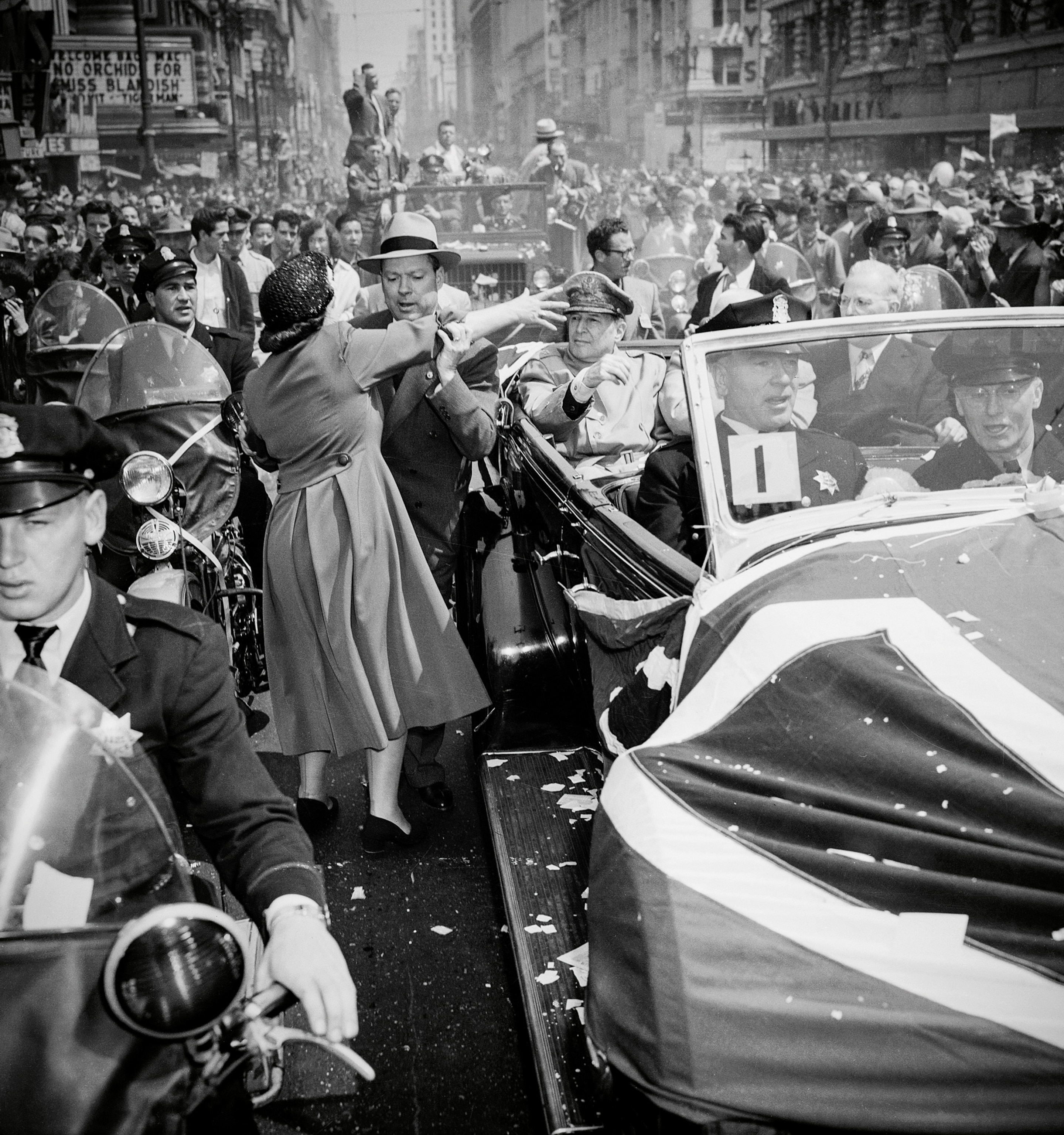
When in 1964 MacArthur died at the age of 84, his body lay in state by order of President Lyndon B. Johnson in the U.S. Capitol Rotunda, where it was visited by 150,000 people. His rugged childhood and his antique sense of honor, instilled in him both by his family and his time at West Point, had prepared this extraordinary man for his remarkable journey through life.